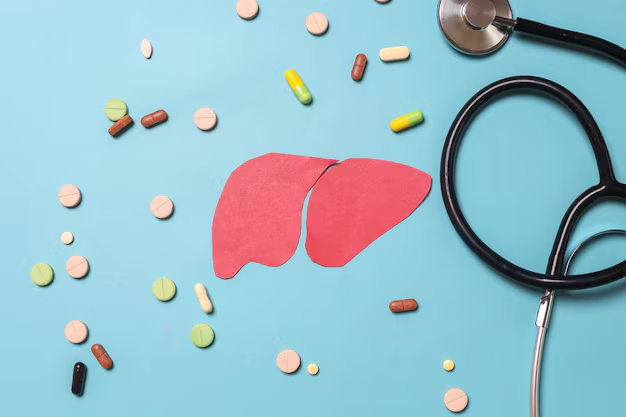Unlocking the Path to Liver Health: How to Address Fatty Liver Disease
Have you ever wondered about the intricate functions of your liver? Beyond its critical role in detoxifying the blood, synthesizing proteins, and aiding digestion, your liver is a resilient organ capable of amazing feats. Yet, like any other organ, it can encounter challenges—one of which is fatty liver disease. Understanding how to manage this condition can be a game-changer in promoting a healthy, balanced life.
Understanding Fatty Liver Disease
What is Fatty Liver Disease?
Fatty liver disease occurs when excess fat builds up in the liver cells. While some fat in the liver is normal, when it comprises more than 5-10% of the liver's weight, it becomes problematic. This condition is broadly categorized into two types:
- Nonalcoholic Fatty Liver Disease (NAFLD): As the name suggests, this occurs in individuals who consume little to no alcohol.
- Alcoholic Fatty Liver Disease (AFLD): This is more common among heavy drinkers and is often a precursor to other liver diseases related to alcohol.
Causes and Risk Factors
Fatty liver disease can result from a variety of factors, including:
- Obesity: Excess body weight is a major contributor as it promotes fat accumulation in liver cells.
- Type 2 Diabetes: Insulin resistance is often linked to fatty liver disease.
- High Cholesterol and Triglycerides: These can contribute to the development of fat deposits in the liver.
- Metabolic Syndrome: A cluster of conditions that increase the risk of heart disease and type 2 diabetes can also increase the likelihood of liver disease.
Path to Managing Fatty Liver Disease
Lifestyle Changes: The Cornerstone of Management
Though dealing with fatty liver disease might seem daunting, lifestyle changes can make a significant impact. Here's how you can address the condition:
1. Embrace a Balanced Diet
A nutritional overhaul can be highly beneficial. Here's what to focus on:
- High-Fiber Diet: Foods like fruits, vegetables, and whole grains aid digestion and help manage body weight.
- Lean Proteins: Incorporate lean meats, fish, and plant-based proteins to support liver health.
- Healthy Fats: Prioritize monounsaturated and polyunsaturated fats found in avocados, nuts, and olive oil.
- Trans Fats and Saturated Fats: Limit intake of processed foods, baked goods, and red meats.
- Sugar and Refined Carbs: High sugar intake can increase fat storage in the liver.
2. Maintain an Active Lifestyle
Regular exercise is crucial for managing weight and improving liver function:
- Aerobic Exercises: Engage in activities like walking, running, or cycling for at least 150 minutes per week.
- Strength Training: Incorporate strength training exercises two to three times a week to build muscle and reduce fat.
3. Weight Management
Losing weight gradually is effective in reducing liver fat. A loss of 5-10% of your body weight can significantly improve liver health.
Medical Considerations
Monitoring and Regular Check-Ups
Regular monitoring through blood tests and imaging scans helps in assessing liver health and tracking progress. Your healthcare provider might suggest tests such as:
- Liver function tests (LFTs)
- Ultrasound or CT scans of the liver
Medications and Supplements
While no specific medications cure fatty liver disease, managing associated conditions such as diabetes and high cholesterol can be beneficial. Some studies suggest that certain supplements, like vitamin E, may help, but it's essential to consult with a healthcare provider before starting any supplements.
Exploring Holistic Approaches
The Role of Stress Management
Stress can impact several body functions, including liver health. Incorporating stress reduction techniques such as meditation, yoga, or mindfulness can create a protective shield around your health.
Adequate Sleep
Ensuring sufficient sleep is another pillar of health. Poor sleep patterns can exacerbate liver problems, so aiming for 7-9 hours of restful sleep a night is ideal.
Important Considerations for a Healthier Liver
Debunking Myths about Fatty Liver Disease
Myth: Fatty liver only affects overweight individuals.
- Truth: While obesity is a significant risk factor, individuals of normal weight can also develop fatty liver disease.
Myth: Fatty liver disease always leads to cirrhosis.
- Truth: Not all individuals with fatty liver disease will develop cirrhosis, especially with timely intervention and lifestyle alterations.
Gradual Progress with Patience and Consistency
While the journey to managing fatty liver disease is not an overnight endeavor, patience and consistency yield significant rewards.
Embracing healthier habits inspires better liver function and serves as a foundation for overall wellness. By approaching this condition with a holistic mindset, you empower yourself to achieve both liver health and longevity.
📝 Key Takeaways for Managing Fatty Liver Disease:
- Diet Changes: Aim for high-fiber foods, lean proteins, and healthy fats. Avoid trans fats and sugars. 🍏🥑
- Regular Exercise: Engage in aerobic and strength-training exercises. 🏃♀️💪
- Weight Management: A small reduction in body weight can improve liver health significantly. ⚖️
- Routine Monitoring: Regular check-ups help track progress and manage associated conditions. 🩺
- Holistic Lifestyle: Incorporate stress management and adequate sleep for overall improvement. 🧘♂️😴
Unlocking your path to liver health is achievable through informed choices and lifestyle changes. With this actionable guide, you're well on your way to better wellness and vitality.

Related Articles
- a Liver Disease
- Can Fatty Liver Disease Be Reversed
- Can Liver Disease Be Cured
- Can You Get Liver Disease At 30
- How Can I Cure Fatty Liver Disease
- How Long Can You Live With Graves' Disease
- How Long Can You Live With Kidney Disease
- How To Cure Fatty Liver Disease
- How To Get Rid Of Fatty Liver Disease
- How To Reverse Fatty Liver Disease
